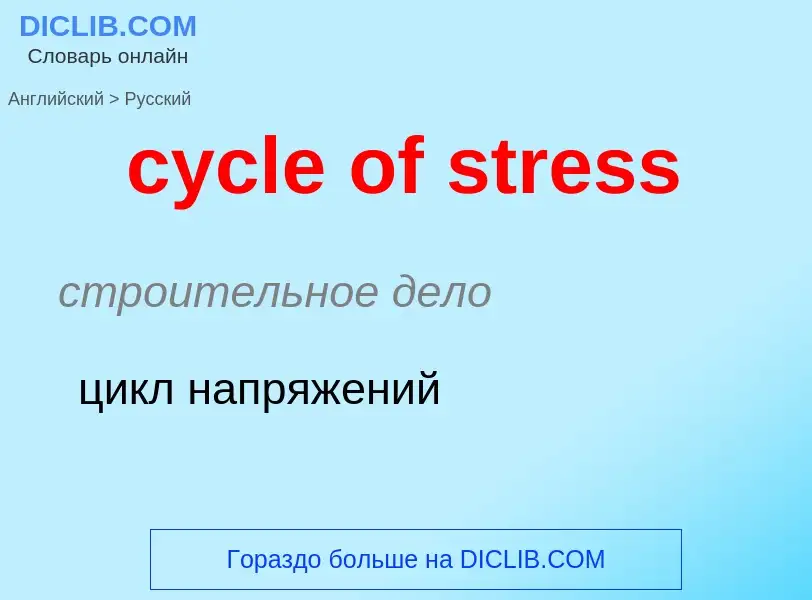Traducción y análisis de palabras por inteligencia artificial ChatGPT
En esta página puede obtener un análisis detallado de una palabra o frase, producido utilizando la mejor tecnología de inteligencia artificial hasta la fecha:
- cómo se usa la palabra
- frecuencia de uso
- se utiliza con más frecuencia en el habla oral o escrita
- opciones de traducción
- ejemplos de uso (varias frases con traducción)
- etimología
cycle of stress - traducción al ruso
строительное дело
цикл напряжений
[əd'və:siti]
общая лексика
неблагоприятная обстановка
существительное
общая лексика
напасти
несчастья
превратности судьбы
напасти, несчастья, бедствия
специальный термин
неблагоприятный фактор
неблагоприятная обстановка
Definición
.
Wikipedia

Stress, either physiological, biological or psychological, is an organism's response to a stressor such as an environmental condition. Stress is the body's method of reacting to a condition such as a threat, challenge or physical and psychological barrier. There are two hormones that an individual produces during a stressful situation, these are well known as adrenaline and cortisol. There are two kinds of stress hormone levels. Resting (basal) cortisol levels are normal everyday quantities that are essential for standard functioning. Reactive cortisol levels are increases in cortisol in response to stressors. Stimuli that alter an organism's environment are responded to by multiple systems in the body. In humans and most mammals, the autonomic nervous system and hypothalamic-pituitary-adrenal (HPA) axis are the two major systems that respond to stress.
The sympathoadrenal medullary (SAM) axis may activate the fight-or-flight response through the sympathetic nervous system, which dedicates energy to more relevant bodily systems to acute adaptation to stress, while the parasympathetic nervous system returns the body to homeostasis.
The second major physiological stress-response center, the HPA axis, regulates the release of cortisol, which influences many bodily functions such as metabolic, psychological and immunological functions. The SAM and HPA axes are regulated by several brain regions, including the limbic system, prefrontal cortex, amygdala, hypothalamus, and stria terminalis. Through these mechanisms, stress can alter memory functions, reward, immune function, metabolism and susceptibility to diseases.
Disease risk is particularly pertinent to mental illnesses, whereby chronic or severe stress remains a common risk factor for several mental illnesses.





